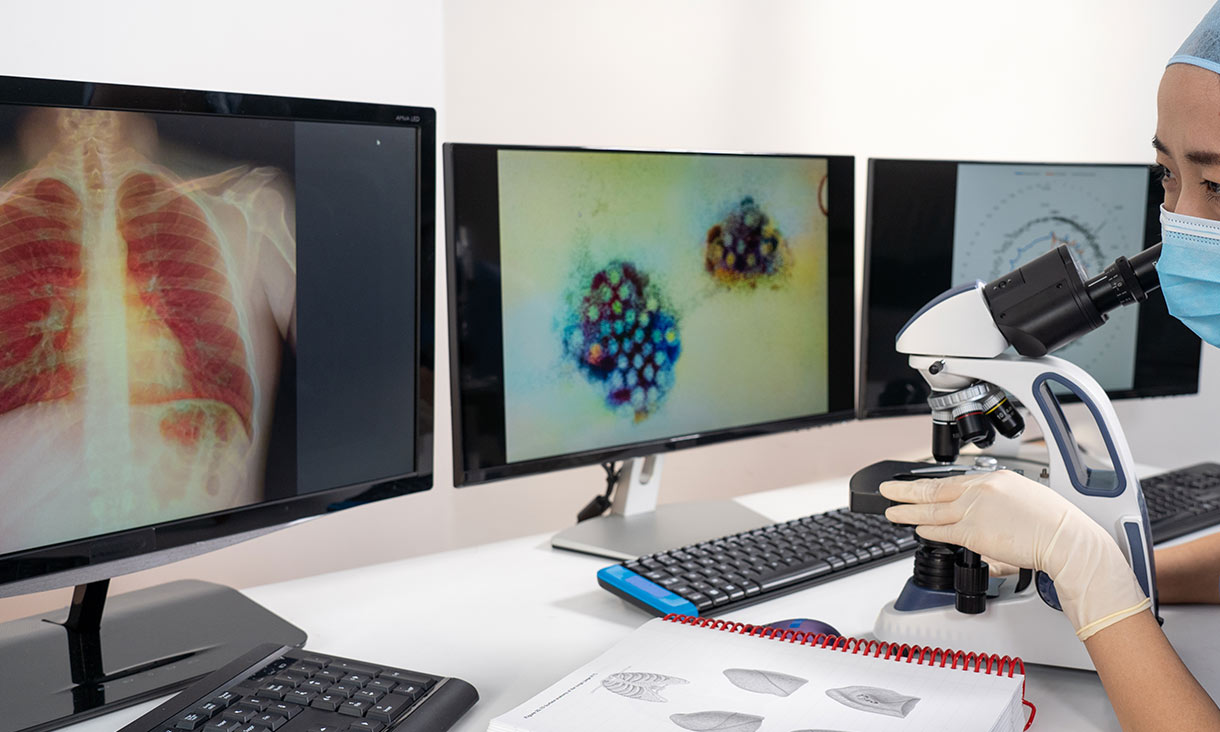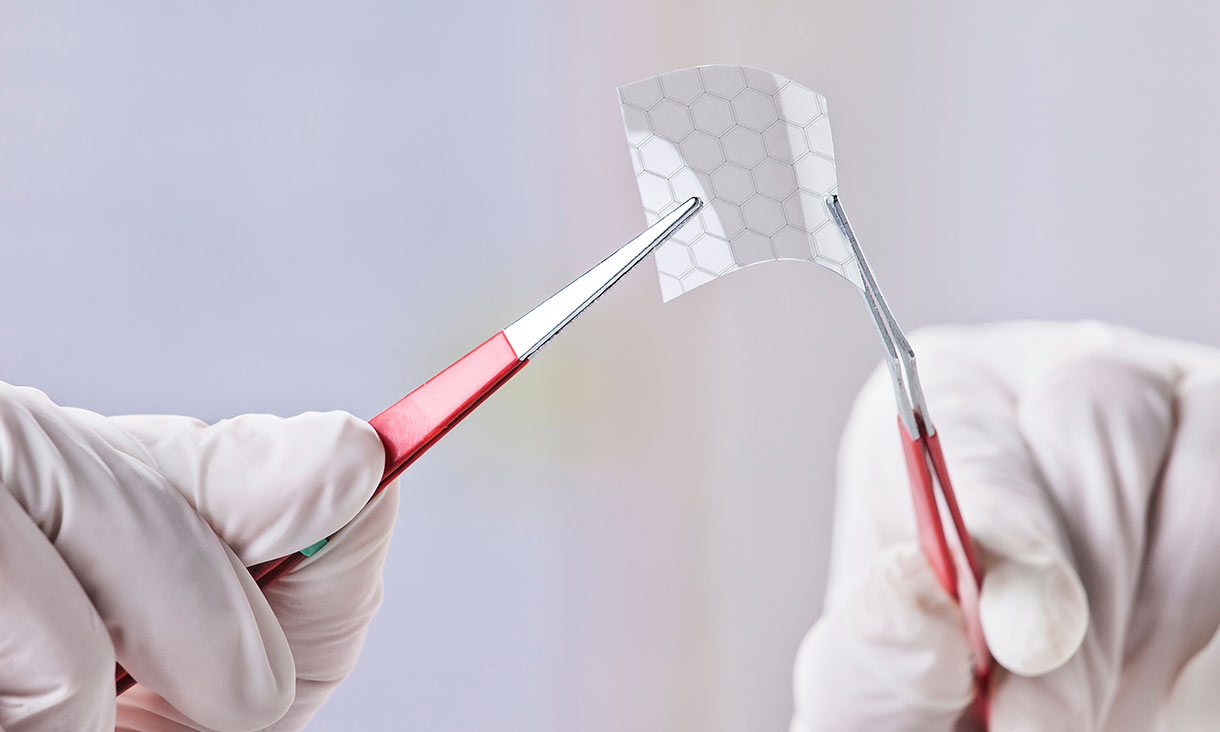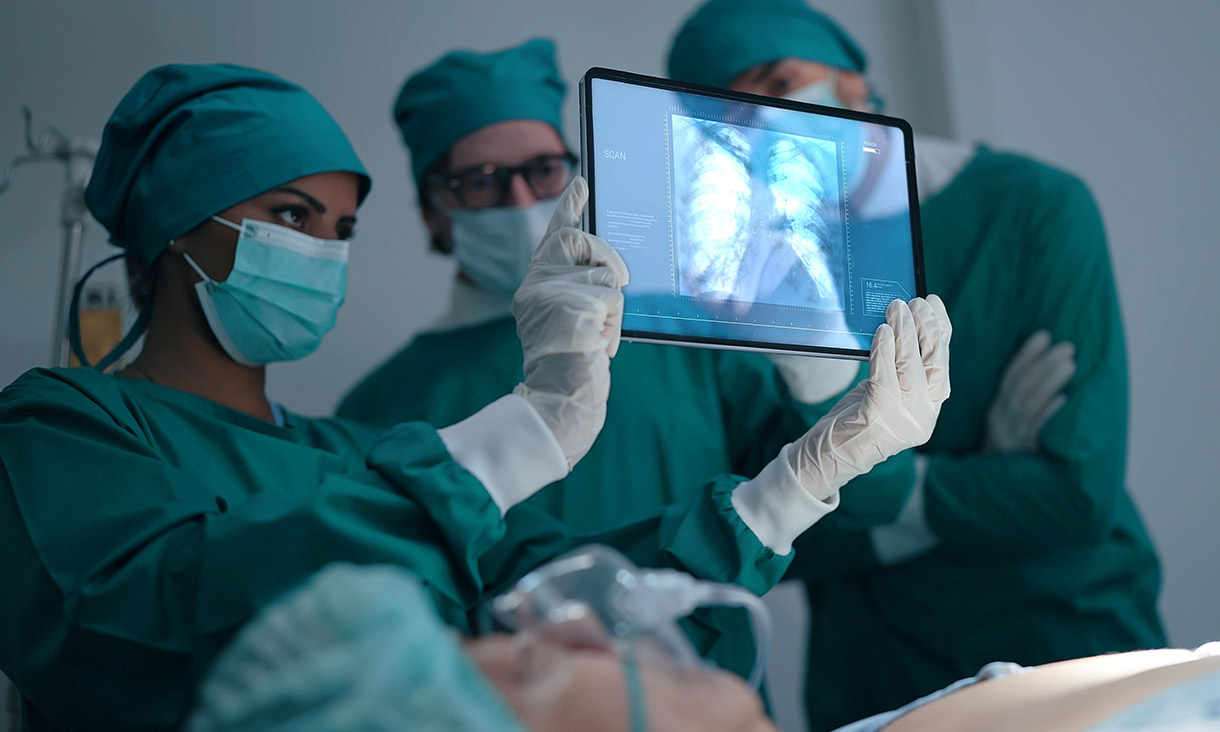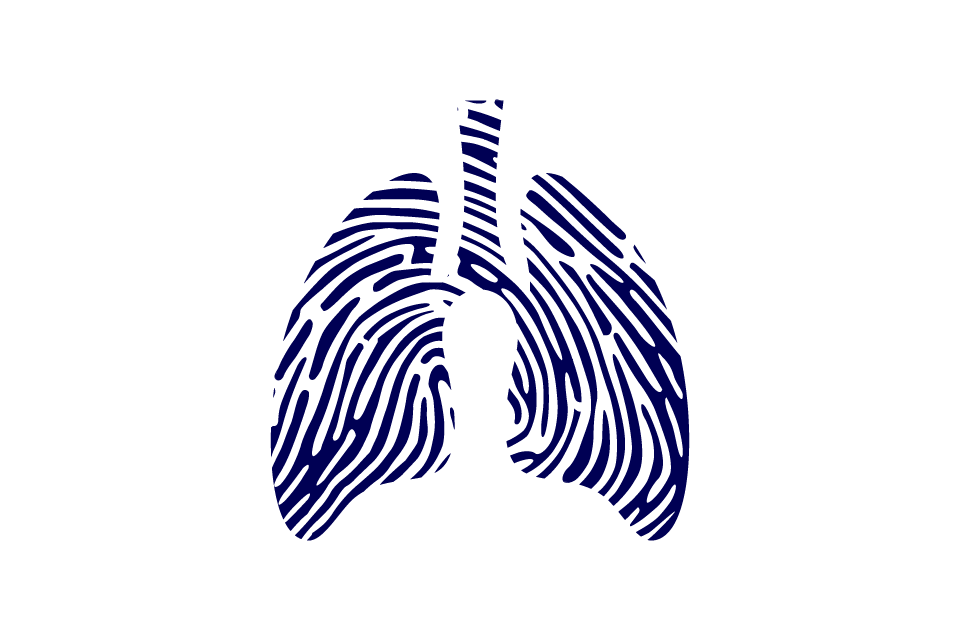


The key to developing new drugs is to model the disease and discover fundamental molecular drivers that represent new therapeutic options.
We have a dedicated and collaborative team of researchers that have an internationally recognised track-record in applying cutting-edge pre-clinical models to discover fundamental new knowledge in disease mechanisms, a central approach to developing new treatments.
We will build on this foundation with strong expertise in pharmacology to identify new therapeutic targets in the priority research areas of chronic respiratory diseases and chronic complications of respiratory viral infections.

The translation of fundamental discoveries requires innovative strategies to realise their full potential impact. For example, many new discoveries fail to impact on the health of lung disease sufferers as new treatments do not sufficiently reach the target or ‘diseased’ cells in the lungs.
This theme will focus on developing new nanomedicines that specifically target lung cells to deliver therapies to where they are needed, thereby improving drug delivery efficiency and safety.
RMIT has world class nano technology researchers and infrastructure including The Micro Nano Research Facility (MNRF). This team will work with internationally recognised experts at RMIT University within the micro/nanomedical ecosystem to develop innovative drug delivery approaches specific for respiratory diseases.

Our centre members bring together clinicians that are internationally recognised for their pioneering research in medical imaging, cardiorespiratory rehabilitation, and biomarker discovery.
The centre membership has established a strong network of outstanding clinical collaborators across multiple hospitals including Royal Melbourne Hospital, Austin Health, Alfred Health and internationally with St James, Hospital, Dublin, Ireland.
This theme will focus on the development of strategies to fast track the translation of our discoveries into clinical use.

An important goal of CRSH is to contribute to the education and training of the next generation of researchers and clinicians that have specialised expertise in lung health.
The centre will focus on enhancing undergraduate and Higher Degree Research (HDR) student research experiences by training them in the speciality area of lung health research.
The theme members have significant experience in teaching and HDR supervision and creating a vibrant environment that fosters intellectual engagement.
Students will be trained in state-of-the-art scientific techniques in a supportive and collegial environment.

Contact our theme leaders using the links above or visit our Centre members and partners page.


RMIT University acknowledges the people of the Woi wurrung and Boon wurrung language groups of the eastern Kulin Nation on whose unceded lands we conduct the business of the University. RMIT University respectfully acknowledges their Ancestors and Elders, past and present. RMIT also acknowledges the Traditional Custodians and their Ancestors of the lands and waters across Australia where we conduct our business - Artwork 'Sentient' by Hollie Johnson, Gunaikurnai and Monero Ngarigo.
Learn more about our commitment to Indigenous cultures